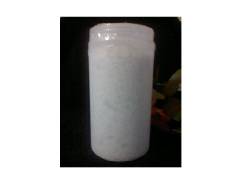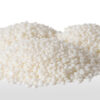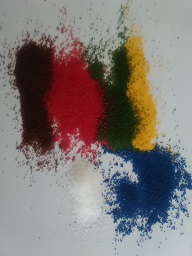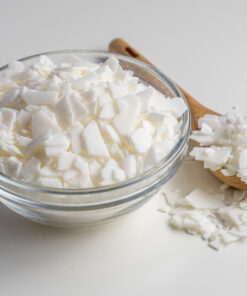-
×
 Dispensing Pump (Natural) - Fits all Boston Bottles
1 × R5,45
Dispensing Pump (Natural) - Fits all Boston Bottles
1 × R5,45 -
×
 Citric Acid - 20kg
1 × R2420,00
Citric Acid - 20kg
1 × R2420,00 -
×
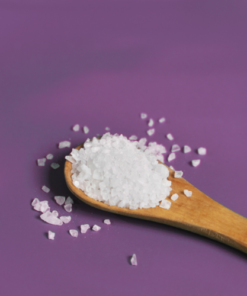 Lavender Bath Salt (Coarse) - 300g
1 × R37,00
Lavender Bath Salt (Coarse) - 300g
1 × R37,00 -
×
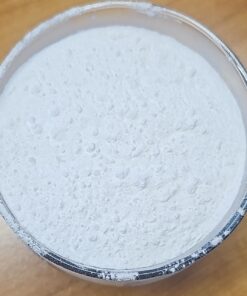 SCI85 Powder (Sodium Cocoyl Isethionate) - 5kg
1 × R3201,00
SCI85 Powder (Sodium Cocoyl Isethionate) - 5kg
1 × R3201,00 -
×
 SB09 - Olive Oil Bar Mould - 100g - PVC
1 × R85,00
SB09 - Olive Oil Bar Mould - 100g - PVC
1 × R85,00 -
×
 10pcs Roll-On Bottle with Cap - 80ml
1 × R84,44
10pcs Roll-On Bottle with Cap - 80ml
1 × R84,44 -
×
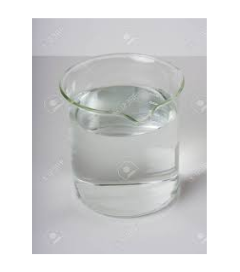 Sodium Lactate (60%) - 1L
1 × R161,70
Sodium Lactate (60%) - 1L
1 × R161,70 -
×
 Distress Oxide - Kitch Flamingo
1 × R154,00
Distress Oxide - Kitch Flamingo
1 × R154,00 -
×
 Sorbitan Stearate - 1kg
1 × R128,29
Sorbitan Stearate - 1kg
1 × R128,29 -
×
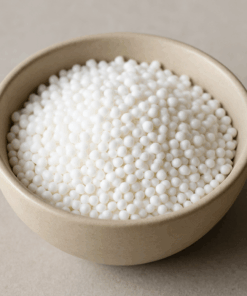 Microcrystalline Wax (Ozokerite 1899) - 500g
1 × R154,00
Microcrystalline Wax (Ozokerite 1899) - 500g
1 × R154,00 -
×
 Aloe Vera Gel (Clear) - 500ml
1 × R120,00
Aloe Vera Gel (Clear) - 500ml
1 × R120,00 -
×
 Square Pointed Candle Mould
1 × R137,48
Square Pointed Candle Mould
1 × R137,48 -
×
 Avocado Butter - 5kg
1 × R2229,73
Avocado Butter - 5kg
1 × R2229,73 -
×
 Rokamina K30 (Cocomidylproply Betaine) - 100ml
1 × R37,40
Rokamina K30 (Cocomidylproply Betaine) - 100ml
1 × R37,40 -
×
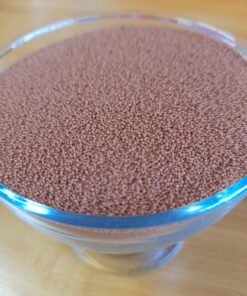 Biodegradable Wax Exfoliating Beads - Mahogany Rust - 100ml
1 × R105,00
Biodegradable Wax Exfoliating Beads - Mahogany Rust - 100ml
1 × R105,00 -
×
 Aluminium Fizz Ball Round Mould - 50mm
1 × R66,75
Aluminium Fizz Ball Round Mould - 50mm
1 × R66,75 -
×
 10pcs Oval Boston Bottle with Black Push Lid (Frosted) - 400ml
1 × R98,00
10pcs Oval Boston Bottle with Black Push Lid (Frosted) - 400ml
1 × R98,00 -
×
 Soap Cutter Blade - Smooth
1 × R165,00
Soap Cutter Blade - Smooth
1 × R165,00 -
×
 Niacinamide Powder (Vitamin B3) - 100g
1 × R180,00
Niacinamide Powder (Vitamin B3) - 100g
1 × R180,00 -
×
 Dried Rosemary - 100g
1 × R52,60
Dried Rosemary - 100g
1 × R52,60 -
×
 Short Jar with Lid (Black) - 50ml
1 × R5,00
Short Jar with Lid (Black) - 50ml
1 × R5,00 -
×
 Lesson - How to make Body Oil
1 × R30,00
Lesson - How to make Body Oil
1 × R30,00
Potassium Hydroxide (99% Purity) – 800g
R75,90
Potassium Hydroxide (KOH) is an inorganic compound with the chemical formula KOH. It is commonly known as caustic potash. It is a strong alkali and is used in various industrial and laboratory applications.
32 in stock
SKU: FWS356
Category: Speciality Chemicals
Tags: (99%, 001874, 800g, chemicals, hydroxide, potassium, purity, speciality
Key Properties and Uses:
1. Strong Base: Potassium hydroxide is a highly alkaline substance and is considered a strong base. It is hygroscopic, meaning it readily absorbs moisture from the air.
2. Chemical Reagent: KOH is commonly used as a chemical reagent in laboratories for various purposes, such as titrations, pH adjustments, and in the synthesis of other chemical compounds.
3. Soap Making: In the soap-making process, potassium hydroxide is used to produce liquid soaps. It reacts with fats and oils to form potassium salts of fatty acids (soap).
4. Alkaline Batteries: Potassium hydroxide is an essential component in alkaline batteries. It serves as an electrolyte that allows the flow of ions and helps in the battery’s functioning.
5. Industrial Cleaning: KOH is a potent cleaning agent and is used in industrial cleaning products, including oven cleaners and heavy-duty degreasers.
6. Biodiesel Production: Potassium hydroxide is employed in the production of biodiesel from vegetable oils and animal fats. It acts as a catalyst in the transesterification reaction, converting triglycerides into fatty acid methyl esters (biodiesel) and glycerol.
7. pH Regulation: In certain industries, potassium hydroxide is used to adjust pH levels in solutions, including in water treatment, food processing, and chemical manufacturing.
Safety Considerations:
Potassium hydroxide is a highly caustic substance and can cause severe chemical burns if it comes into contact with the skin or eyes. It is crucial to handle KOH with care, wearing appropriate protective equipment, such as gloves and safety goggles. Additionally, it should be stored and handled away from incompatible materials and moisture.
As with any chemical, it is essential to follow safety guidelines and handle potassium hydroxide with caution to ensure safe usage in various applications.
| Weight | 1,00 kg |
|---|---|
| Dimensions | 9 × 9 × 20 cm |

